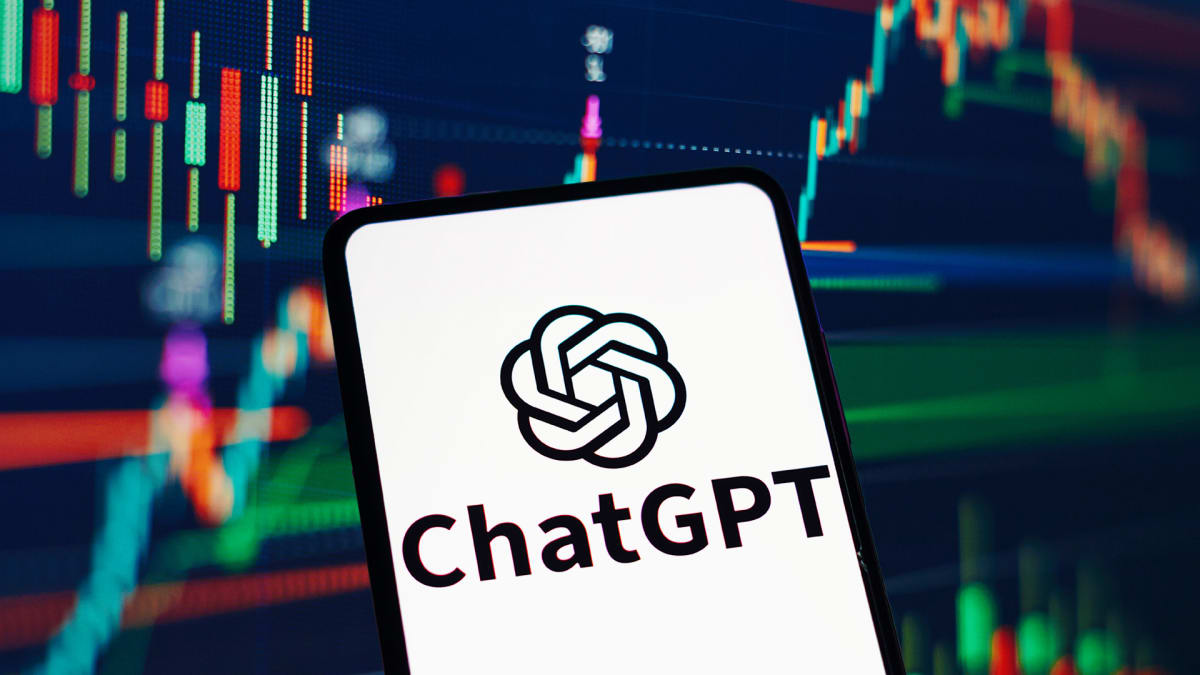
As the rise of artificial intelligence dominates public discourse on Wall Street and Main Street alike, are some companies simply having FOMO?
Few would argue that AI won't directly change how we live and do business, though the extent remains unknown. However, during the May Action Alerts PLUS members' call, portfolio manager Chris Versace and renowned technical analyst Helene Meisler said the current hype around the AI revolution draws more than its fair share of parallels to the Dotcom bubble. While both argued AI is here to say, the technology is in early innings and some companies may be using "AI" as a buzzword to stay relevant.
So maybe it's time to ask yourself, is a company part of the revolution, or is it simply doing the 2000 equivalent of adding a Dotcom to its name?
FULL VIDEO TRANSCRIPT BELOW:
SARA SILVERSTEIN: How do we feel about AI and the possibility of making money on it in the market?
CHRIS VERSACE: So I think that there's two angles to look at it. There's the near term, and all that's happened year to date, and how its stock prices-- Nvidia, Marvell we alluded to earlier, Google more recently, and the like. And I just get a little concern when I hear all sorts of companies really starting to talk about it as part of their everyday use of language, press releases, that sort of thing.
And I have a short list with me here. AI and with PepsiCo, Wendy's, Ford, CVS, J&J, Visa, EA, and that's just some from the last couple of days. My concern this is a repeat of the dot com bubble where companies feel like, oh jeez, if I don't say something about AI, folks are going to think I'm being left behind. I need to say something, even if it's vaporware. I'm just talking about it. I may be investing it, I may not be investing in it, but I got to say something so I'm at least relevant, so I don't lose my position.
And if remember back in the dotcom bubble, all sorts of companies were making announcements about what they were doing. And I think, ultimately, AI will be similar to the internet, right? In the very beginning of the dot com bubble, what we thought the internet was going to be is very different than we have today.
Will AI ultimately be-- excuse me. Will it ultimately be disruptive? Yes. Will it ultimately create jobs? Yes. Will it disrupt existing business models? Yes.
But I think, in the current moment, it's out a little bit over its skis. And the one thing just to keep in mind is what we saw in Washington yesterday regarding the regulatory conversation. This is something that I think is going to shape what happens from here on out.
But my concern-- and members, you've heard me use this word in the past-- that right now, as it relates to AI vis-a-vis some of these stock prices, there's an awful lot baked into the expectations. A little bit of hopium, if you will, that has me a little concerned.
SARA SILVERSTEIN: And Helene, can you weigh in on this a little bit? I know it probably won't be the argument against it as much as I thought.
HELENE MEISLER: It is not the argument against it. All I can think of as I'm listening to Chris is, Long Island Iced Tea Blockchain, or maybe it was Long Island Blockchain Iced Tea. There was a company I don't know how many years ago, within the last decade, Long Island iced tea. And somehow or another, when blockchain became the buzzword of the day, they changed their name to Long Island Iced Tea Blockchain or something like that. It was dumb.
It was like back in 1999, everybody added a dot com onto the end of their name, I guess, the company's name, just because they thought it would give them another 20-point run in their stock. Everything I've read about AI, I do think it's a game changer. I think the internet was a game changer. But right now, it feels too buzzwordy to me.
I'm also reminded, as I said to Sara and Chris, that it was a big deal when they laid cables for the internet across the oceans. And who made money off of that? Because I certainly can't remember.
So I think there's the buzzword time that you have when it comes to something new and different in terms of technology, and everybody wants in on it, right? And then you have the period of time where you actually have the people who can make money off of it. And I think we're in the buzzword phase right now.







